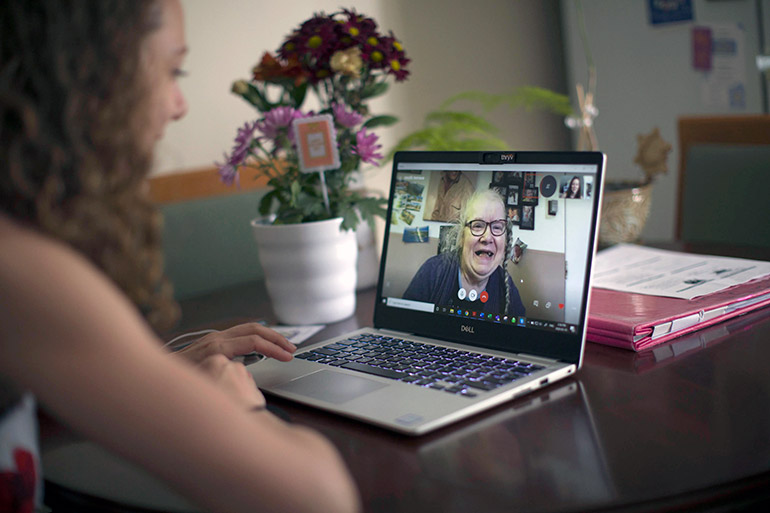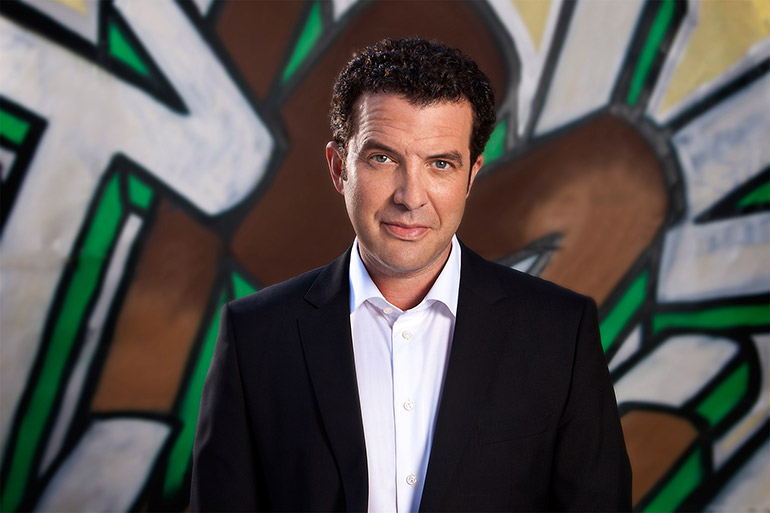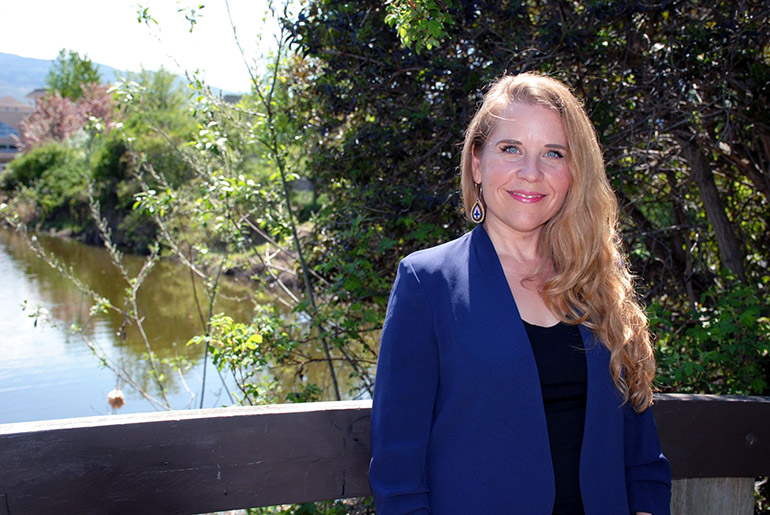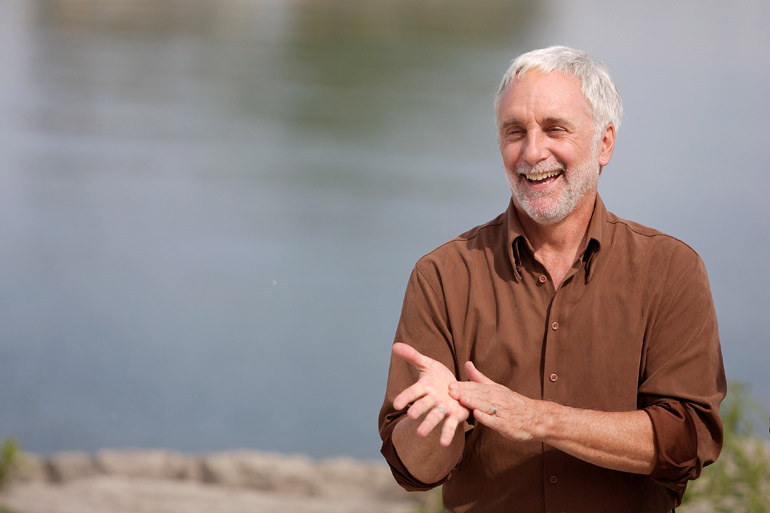
Naomi Mison, who is hosting an event to discuss virtual solutions to support loved ones during COVIID-19, has a conversation with her mother on Skype.
More than 30 virtual events are lined up, from health tips to art classes
This March will be the eighth annual Embrace Aging month taking place across the Okanagan.
Organized each spring by UBC Okanagan’s Institute for Healthy Living and Chronic Disease Prevention (IHLCDP), the goal is to raise awareness and educational opportunities on issues relevant to seniors and their families, explains Nursing Professor Joan Bottorff, director of the IHLCDP.
“After living with COIVD-19 for a year, we have all learned how important all aspects of health are—good physical, mental and social health is vital for us all,” says Bottorff. “This is especially important for our aging population.”
Bottorff says that by 2036 it is projected older adults will account for 25 per cent of Canada’s population. That statistic alone makes programs that support successful and healthy aging vital for everyone.
“Embrace Aging Month brings into focus the importance of supporting older adults in our communities,” she adds. “We have organized a variety of events that will share information aimed at bettering the quality of life among older adults.”
Co-sponsored by Interior Savings Credit Union and Interior Health, March is filled with more than 30 free events, workshops and activities for seniors, their families and caregivers
But, she notes, the workshops go beyond supplying healthy aging tips.
“It’s also about having fun, consciously making a point to enjoy our days, even though some people may feel separated or isolated during the pandemic,” Bottorff says.
This year event organizers have teamed up with Border Free Bees to offer a number of workshops including how to build a home for mason bees and how to become a bee ambassador. Other events include online painting classes, a beading workshop, estate planning, walking tips, scam protection ideas and a Women in Syilx culture presentation by Kelowna Museums.
Participants will also hear from UBC Okanagan students and faculty about the latest research on the importance of gut health, nutrition, stroke care, tips on transitioning into a care home or aging at home, advice on how to get a good night’s sleep and tips to prevent falls.
All events, free and open to the public, will be offered virtually via Zoom. To learn more, visit: okanaganembraceaging.com
About UBC’s Okanagan campus
UBC’s Okanagan campus is an innovative hub for research and learning founded in 2005 in partnership with local Indigenous peoples, the Syilx Okanagan Nation, in whose territory the campus resides. As part of UBC—ranked among the world’s top 20 public universities—the Okanagan campus combines a globally recognized UBC education with a tight-knit and entrepreneurial community that welcomes students and faculty from around the world in British Columbia’s stunning Okanagan Valley.
To find out more, visit: ok.ubc.ca




